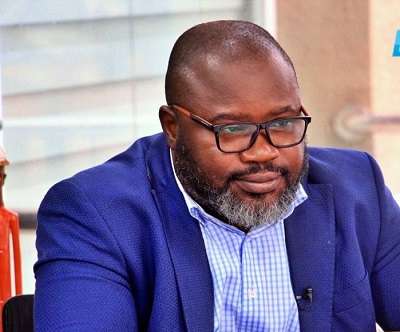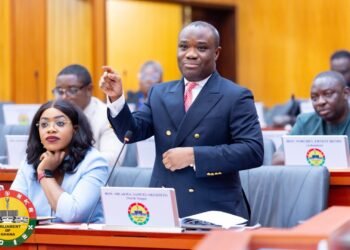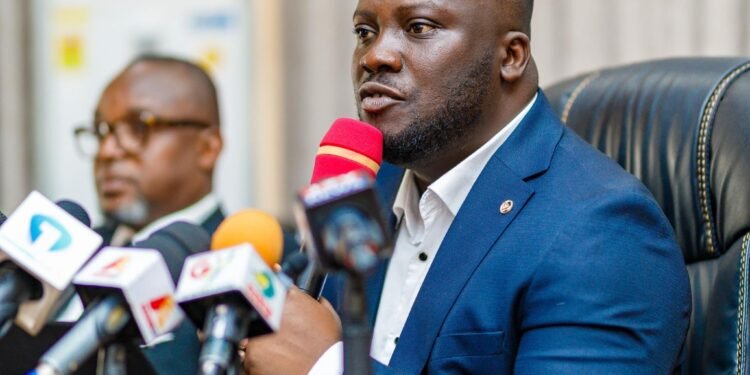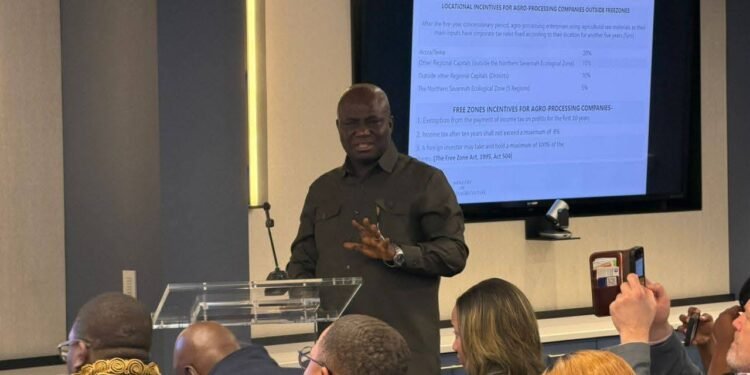The Executive Director of Africa Education Watch (EduWatch), Kofi Asare has urged the government to adopt sustainable solutions to address the head porterage phenomenon, popularly referred to as “Kayaye” in the country.
In a statement, Mr Asare, the educational activist and renowned policy analyst indicated that the persistent problem of “kayaye,” or head porterage in the country reflects deeper systemic issues in the country’s education and economic livelihoods that require immediate and integrated intervention.
“Almost half a million (454,014) girls in Ghana aged 4 to 17 years have never attended school. Over a quarter (27.6%) of these girls are in the Northern Region which has the highest number of girls that have never attended school (125,287)-GSS, 2022″.
Kofi Asare, Executive Director of Africa Education Watch
In proposing some solution to address the phenomenon, Mr Asare underscored the fundamental role of educational investments in addressing the systemic problem in the country.
He emphasized that education is not just about schools but also household contributions, stating that to address the educational gaps, particularly in the impoverished northern regions, a multi-faceted approach that enhances education access, retention, quality, and economic stability is essential.
“Education is a function of investments; both school and household. An integrated approach, which improves education access, retention, and quality, and economic livelihoods is a sin qua non to sustain basic school enrollment to completion and secondary transition in the impoverished northern regions”.
Kofi Asare, Executive Director of Africa Education Watch
Building Basic Schools
Among many other things, the Executive Director of the education think-tank group called for the establishment of basic schools in underserved rural communities, particularly in the northern part of the country.
According to him, the establishment of these schools should be attractive and conducive to learning by providing hot meals, free exercise books, textbooks, uniforms, and motivated teachers.
Mr Asare also added that the availability of decent school furniture and reducing the distance students travel to less than 5 kilometres are also critical in increasing girls’ intake in basic schools within most underserved rural communities in the northern part of the country.
Expressing his disappointment over successive government failure to expand public basic infrastructure in most underserved rural communities in the northern part of the country, Mr Asare decried that these initiatives have been discussed on paper for decades, but their implementation has been significantly lacking.

Economic Resilience and Alternative Livelihoods
At the community level, Kofi Asare, the Executive Director for Africa Education Watch urged the government to develop climate-responsive alternative livelihoods to mitigate high poverty levels caused by failing agriculture.
This, he noted involves building economically resilient systems that can protect young girls from the pressures that lead to “kayaye.”
Mr Asare warned against the politicization of such initiatives, which often results in the distribution of inputs to party loyalists rather than genuine community development.
“Don’t go dishing out inputs to party faithful and pretend you are developing alternative livelihoods of a community,”
Kofi Asare, Executive Director of Africa Education Watch
Mr Asare further asserted that some successful models of integrated approaches executed by leading non-governmental organizations in northern communities offer a blueprint for these initiatives.
He stated that the models used by these non-governmental organizations focus on honest problem-solving rather than political manoeuvring.
He emphasized the critical need for the government to adopt the same models used by these non-governmental organisations with an honest mindset and a genuine commitment to solving the problem.
He affirmed that the replication of NGO-led models in northern Ghana has shown promising results in some communities, demonstrating the potential for broader application.
Mr Asare concluded by stating that addressing the educational and economic challenges in Ghana’s Northern Region necessitates a comprehensive, integrated approach.
He stressed that, by focusing on both educational infrastructure and economic stability, and avoiding the pitfalls of politicized interventions, the country can create a sustainable pathway to eradicate “kayaye” and ensure that every girl has access to education.
READ ALSO: Burkina Faso on Edge, Fears Another Military Mutiny























